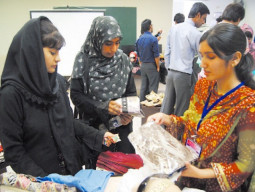
According to press reports, the prime minister has sought a review of key proposals, as most of them are a repeat of the previous 2012-15 policy, which failed miserably to achieve any of its targets. The Ministry of Commerce should take it as an opportunity and propose some bold steps rather than rehash the earlier proposals.
Realising Iran-Pakistan trade potential
What can those courageous steps be? First, the ministry should look for out-of-box solutions for the overall structure of foreign trade policy arrangements. An excellent model would be that of Turkey where foreign trade and particularly those issues that have a bearing on more than one ministry are handled by the prime minister’s office.
Thus, issues such as setting of customs tariffs and other trade-related taxes and regulations; and trade relations through free trade agreements or regional or multilateral negotiations could be handled by an independent office directly supervised by the prime minister.
This would ensure that an independent office for determining taxes on international trade, and thus trade-related taxation policy, is not left to the discretion of tax collectors whose sole consideration is raising revenues without looking at exports or promoting bilateral relations through trading arrangements.
Such an arrangement has worked rather well for Turkey. Both Pakistan and Turkey had similar level of exports in 1980 (at about $3 billion) but since then serious reforms in Turkey have resulted in a major rise in their exports, which are now over $150 billion while Pakistan’s exports have not even reached $25 billion.
Trade policy likely in November
More recently, the gap has widened further as Pakistan is losing on average 1.45% yearly in export market shares.
Streamlining trade
The second major initiative that the ministry can take is to make it easier for traders to export and import goods.
Pakistan ranks at 169 out of 189 economies in terms of trading across borders, according to the World Bank Doing Business 2016 report. This ranking has been continuously slipping over the last 10 years. Since there are many players involved while supplying goods from a factory or a farm to any destination outside, the ministry can have a better coordinating role.
Last year, members of the World Trade Organisation (WTO) agreed on a new Trade Facilitation Agreement. While other countries are making all-out efforts to implement provisions of the agreement, Pakistan seems to be taking a different route. If one were to compare Turkey’s commitments to the WTO with those of Pakistan, the dissimilarity will be obvious. While Turkey is implementing almost the entire agreement within a short time, Pakistan has asked for postponing almost all measures till it can get technical assistance from donors.
It is not known what can be achieved through any new technical assistance, as multiple donors have spent huge amounts to carry out studies on modernisation of customs procedures and it is up to the government to implement those rather than commission new reports.
Delay in trade policy causing uncertainty for industries
International conventions
Another important step for the Ministry of Commerce would be to fully implement all the agreements and international conventions that it has signed to promote regional trade.
The most recent example is that of TIR Convention, which facilitates movement of goods under an international guarantee system. After deliberating for over 18 years, Pakistan finally agreed to implement it from January 2016. However, as yet no major steps seem to have been taken for this purpose.
In order to implement the convention, Pakistan needs a new trucking policy. All the groundwork was completed almost a decade ago but the policy is still lying in cold storage. The ministry can seek its early implementation through the new trade policy.
Trade accords
Finally, the ministry should try to portray the future framework of how it intends to proceed to open up new markets through bilateral, regional or multilateral accords. Instead of ad hoc announcements about signing new free trade agreements, the ministry should formulate short, medium and long-term plans.
While the multilateral negotiations are stalled, the ministry could review those agreements to which Pakistan is a party but has not yet been able to implement.
Senators term trade policy a wish list
It will be doing a great service to the nation if it uses the opportunity being offered by the prime minister to come up with a new forward-looking trade policy framework rather than seek approval for failed measures of the past.
The writer served as Pakistan’s ambassador to WTO from 2002-08
Published in The Express Tribune, February 1st, 2016.
Like Business on Facebook, follow @TribuneBiz on Twitter to stay informed and join in the conversation.
1724760612-0/Untitled-design-(12)1724760612-0-405x300.webp)
















COMMENTS (2)
Comments are moderated and generally will be posted if they are on-topic and not abusive.
For more information, please see our Comments FAQ